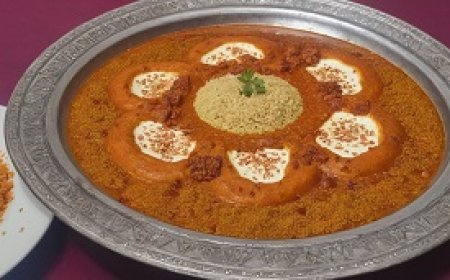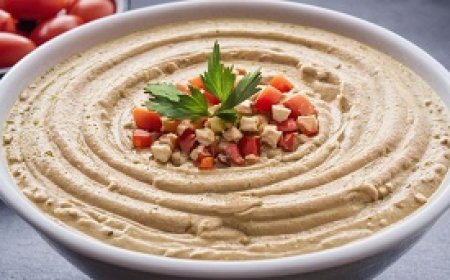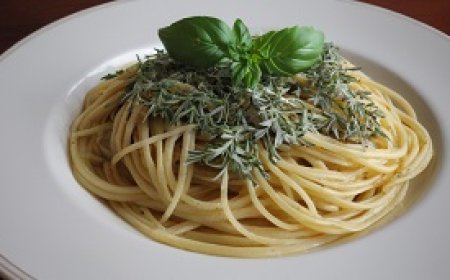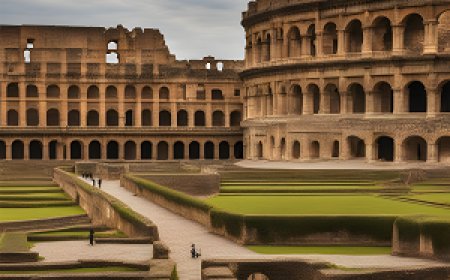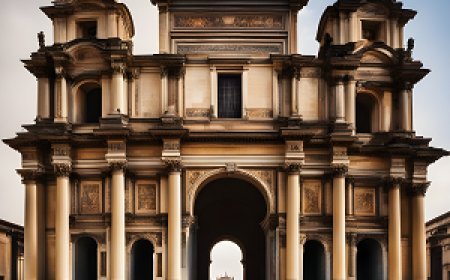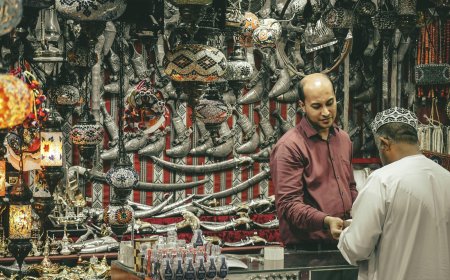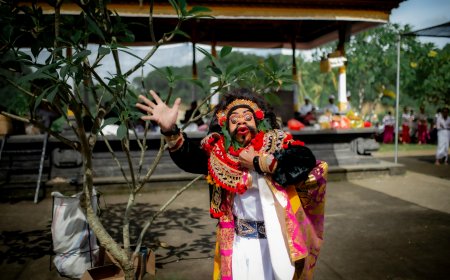Understanding the culture and traditions of the Māori people in New Zealand
The culture of the Māori in New Zealand is characterized by richness and diversity, embodying deep values such as respect and solidarity. Their traditions include the powerful Haka dance and traditional woodworking arts, along with a rich heritage of stories and myths carrying educational and spiritual meanings. The Māori culture reflects their concern for preserving nature and respecting the environment, and their cultural experiences and traditions are considered an integral part of New Zealand's national identity.
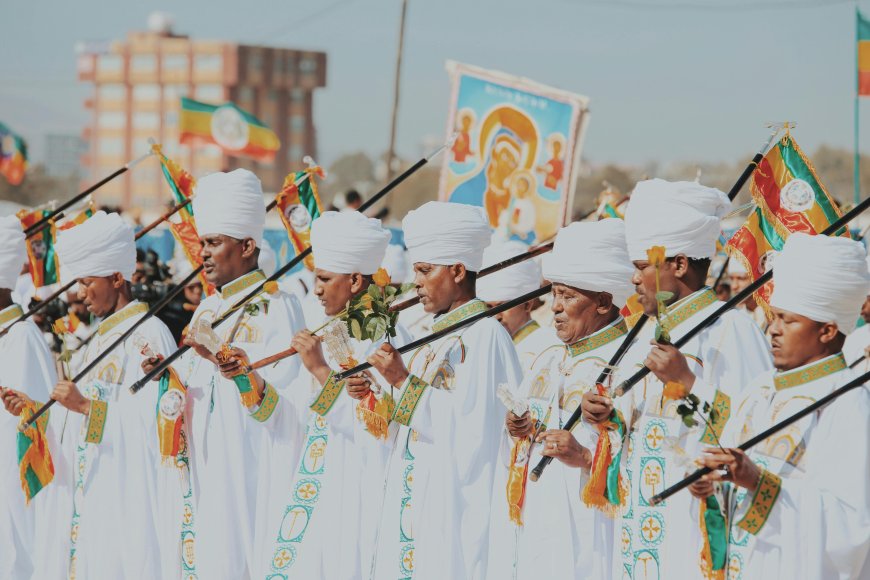
The culture of the Māori in New Zealand is characterized by richness and diversity, embodying deep values such as respect and solidarity. Their traditions include the powerful Haka dance and traditional woodworking arts, along with a rich heritage of stories and myths carrying educational and spiritual meanings. The Māori culture reflects their concern for preserving nature and respecting the environment, and their cultural experiences and traditions are considered an integral part of New Zealand's national identity.
Understanding the culture and traditions of the Māori people in New Zealand
The heritage and traditions of the Māori people in New Zealand constitute an integral part of the country's national culture, reflecting the historical depth and unique cultural diversity of this indigenous population. Māori culture is distinguished by its distinctive elements, blending ancient traditions with modern influences, and reflecting important values such as respect, solidarity, and harmony with nature.
One of the most prominent aspects of Māori heritage is the Haka, a traditional war dance considered a symbol of strength, challenge, readiness for battle, and defense of land and identity. The Haka enjoys great popularity and is performed at various occasions such as welcoming ceremonies for new guests, as well as sporting and cultural events.
In addition to the Haka, Māori culture is characterized by traditional arts such as wood carving, weaving, and craftsmanship, which demonstrate high artistic skills and intricate details reflecting the unique heritage of this people. These arts serve as a means of expressing identity and belonging for the Māori, carrying stories and symbols that reflect their history and traditions.
Regarding traditions, Māori culture is renowned for its stories and myths that narrate the history, cosmology, and relationship of the people with nature and deities. These stories are an important part of their oral heritage, transmitting ancient wisdom and teachings to new generations.
Through these elements and more, the heritage and traditions of the Māori people in New Zealand are characterized by richness and diversity, reflecting the dynamic interaction between ancient and modern traditions and the continuity of identity and culture across generations.
Beliefs, Traditions, and Values
Beliefs, traditions, and values form the foundation of Māori culture in New Zealand, expressing the depth of history, spirituality, and connection with nature and society. Māori beliefs are characterized by plurality and diversity, reflecting respect, tolerance towards others, and acceptance of differences.
Among the important beliefs in Māori culture is the belief in spirituality and the balance between the natural world and the spiritual realm. They view nature and the land as interconnected with them, respecting and preserving it as an integral part of their identity.
Māori traditions include a diverse range of social, religious, and cultural practices and events, such as wedding ceremonies, social gatherings, and celebrations of seasons and religious holidays. These traditions serve to strengthen belonging and solidarity within the Māori community and enhance social and familial bonds.
As for values in Māori culture, they revolve around respect, solidarity, justice, courage, and tolerance. These values are evidence of the strength and cohesion of the Māori community and the spirit of cooperation and solidarity among its members.
Māori culture in New Zealand is manifested through their spiritual beliefs, diverse traditions, and deep values, embodying a heritage rich in wisdom and positive interaction with the world and society around them.
The Influence of Māori Culture on New Zealand's National Identity
Māori culture plays a vital role in shaping New Zealand's national identity, significantly contributing to promoting cultural diversity and enhancing understanding and mutual respect among different communities. Recognizing and respecting Māori culture is an essential part of New Zealand's national identity.
One of the most significant impacts of Māori culture on national identity is promoting society's understanding of cultural and social diversity. Thanks to their rich heritage and ancient traditions, the Māori people are an integral part of New Zealand's national identity, enriching cultural dialogue and promoting social integration.
Additionally, Māori culture plays a significant role in promoting inclusivity and social justice in New Zealand. New Zealanders seek to integrate the values of respect and solidarity, which are considered part of Māori culture, into society as a whole, promoting social justice and contributing to building a more cohesive and cooperative society.
Through supporting cultural dialogue and enhancing communication between different cultures, Māori culture contributes to building bridges of understanding and closeness between peoples, promoting national belonging and openness to diversity and multiculturalism in New Zealand.
Historical and Contemporary Arts and Customs
The historical and contemporary arts and customs of the Māori, whether traditional or modern, are an integral part of their rich and diverse culture. Historically, the Māori had artistic traditions that reflected their craftsmanship skills and artistic expression of their identity and history. These arts and customs carry ancient values and traditions, transmitting wisdom and knowledge from generation to generation.
Among the historical arts that reflect Māori culture are wood and stone carving arts. The Māori had remarkable skills in wood carving to create sculptures and artworks representing gods, ancestors, and important cultural scenes. Additionally, they also had advanced techniques in stone carving and traditional jewelry making.
With modern developments, Māori arts and customs remain alive and continue to evolve. Contemporary arts include a blend of traditional techniques and modern concepts, reflecting the influence of social and cultural developments on Māori society.
In addition to visual arts, contemporary customs include singing and dancing, especially the Haka, which is considered a powerful artistic and cultural expression blending movement, singing, and physical expression.
Historical and contemporary arts and customs are an integral part of Māori culture, reflecting its evolution and continuity throughout the ages and generations.
Understanding Māori traditions and their cultural impact
Understanding Māori traditions and their cultural impact is important for comprehending the depth and diversity of New Zealand's culture. Māori culture is influenced by its rich history and experiences, making it possess significant cultural influence within New Zealand society.
Getting to know Māori traditions involves understanding the oral stories and myths they carry. These stories reflect their beliefs, values, and history, contributing to the transmission of knowledge and wisdom across generations. Additionally, Māori traditions encompass ceremonies and celebrations that express various expressions of Māori culture and history.
The cultural impact of Māori traditions manifests in several aspects, firstly, in enhancing mutual understanding and respect among different cultures in New Zealand. This contributes to building bridges of communication and cooperation between Māori communities and others, fostering solidarity and peaceful coexistence.
Moreover, the influence of Māori traditions enriches the arts and culture of New Zealand as a whole. Māori people have distinctive artistic traditions in carving, weaving, and bone carving, contributing to the diversity of the cultural and artistic landscape of the country.
Understanding Māori traditions and their cultural impact enhances mutual understanding and respect among communities in New Zealand, contributing to enriching the national culture with its diversity and multiplicity.
The martial dance and artistic expression
The martial dance and artistic expression in Māori culture are fundamental and prominent aspects of their cultural and heritage expression. The haka, renowned among the Māori people, is one of the most well-known forms of martial dances that possess deep expressive power.
The haka combines strong and vigorous movements with powerful facial expressions, conveying strength, courage, and readiness for confrontation. Additionally, the haka is considered an expression of the cultural identity of the Māori, encompassing a rich and profound heritage that reflects their history, values, and warrior spirit.
In addition to the haka, other artistic expressions in Māori culture include a diverse range of dances and artistic performances that reflect the artistic diversity of this people. These performances include singing, music, and theatrical productions used to express both ancient and contemporary narratives, shedding light on important issues and values in society.
These dances and artistic expressions are integral parts of Māori identity, reflecting the deep spirit of this people, their history, and their values. They serve as a means of expressing cultural and social identity and of transmitting heritage and ancient teachings to future generations.
Respect and solidarity
Respect and solidarity are essential aspects of Māori culture in New Zealand, where these values are fundamental in their interactions with each other and the world around them.
Respect in Māori culture is demonstrated through their appreciation for others and themselves, including ancestors, elders, leaders, and newcomers. Respect also involves recognizing and acknowledging the rights of others and appreciating cultural diversity and expressions.
Solidarity, on the other hand, signifies the community cohesion and spirit of cooperation among its members. Solidarity is integral to Māori culture, as individuals strive to support each other and collaborate to achieve common goals and face challenges.
The value of solidarity is evident in various aspects of Māori community life, including social gatherings, celebrations, and collective activities. Individuals come together to organize events and support each other in difficult times, fostering cohesion and social bonds.
Overall, respect and solidarity are integral parts of Māori cultural identity, reflecting the values and principles they uphold as a people. These values promote understanding, peace, and peaceful coexistence among different cultures and communities in New Zealand.
Summary
Understanding the culture and traditions of the Māori people in New Zealand involves delving into the depth of their history and cultural diversity as indigenous people. The Māori culture is manifested in their rich heritage of stories, myths, and traditional arts, with a strong emphasis on values of respect, solidarity, and harmony with nature. The haka, the famous war dance, is an integral part of Māori culture, expressing strength, courage, and cultural expression. Through these traditions and values, Māori culture contributes to fostering understanding and respect among communities in New Zealand and promotes awareness of cultural and social diversity in the country.
Sources
1. New Zealand Ministry of Tourism Website
2. Māori Heritage Institute Website
What's Your Reaction?




















































